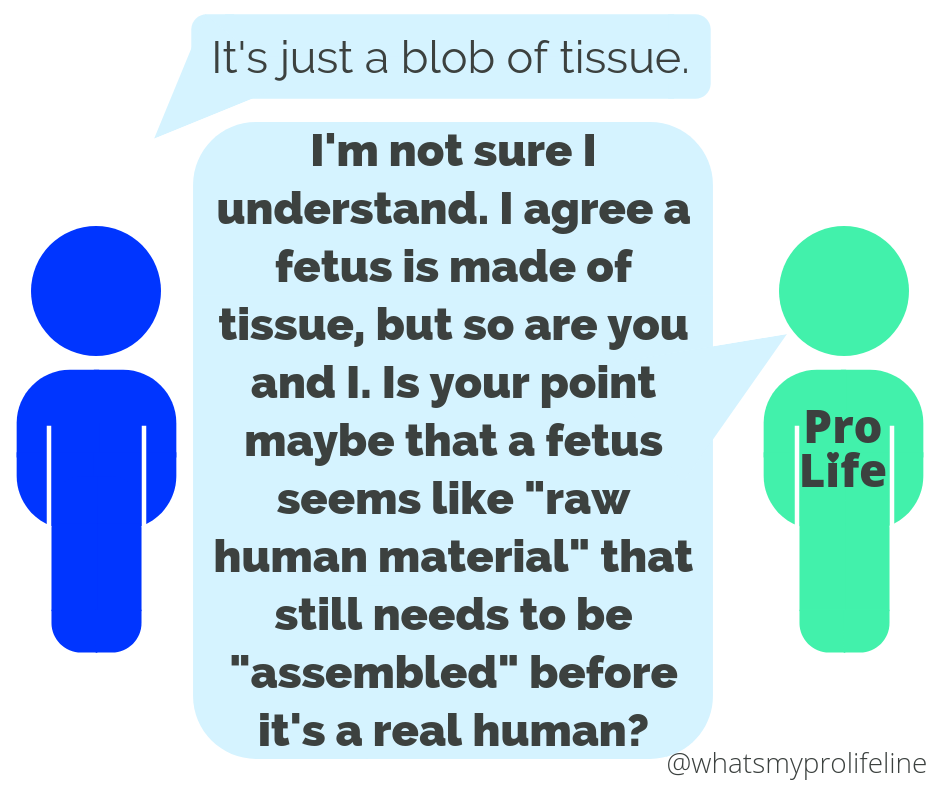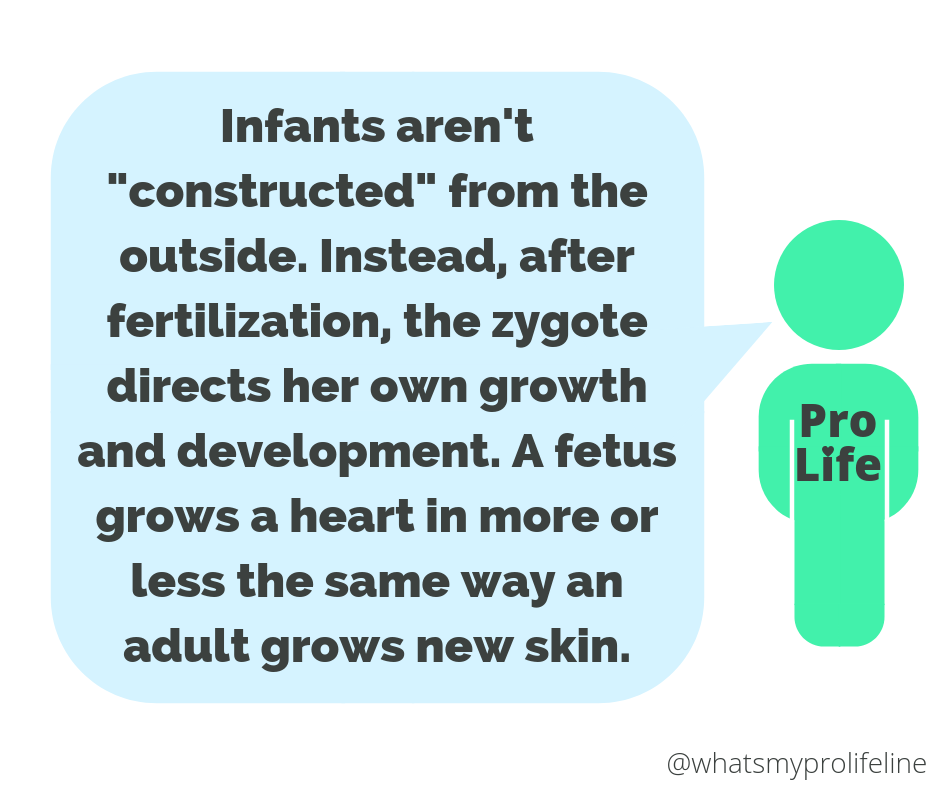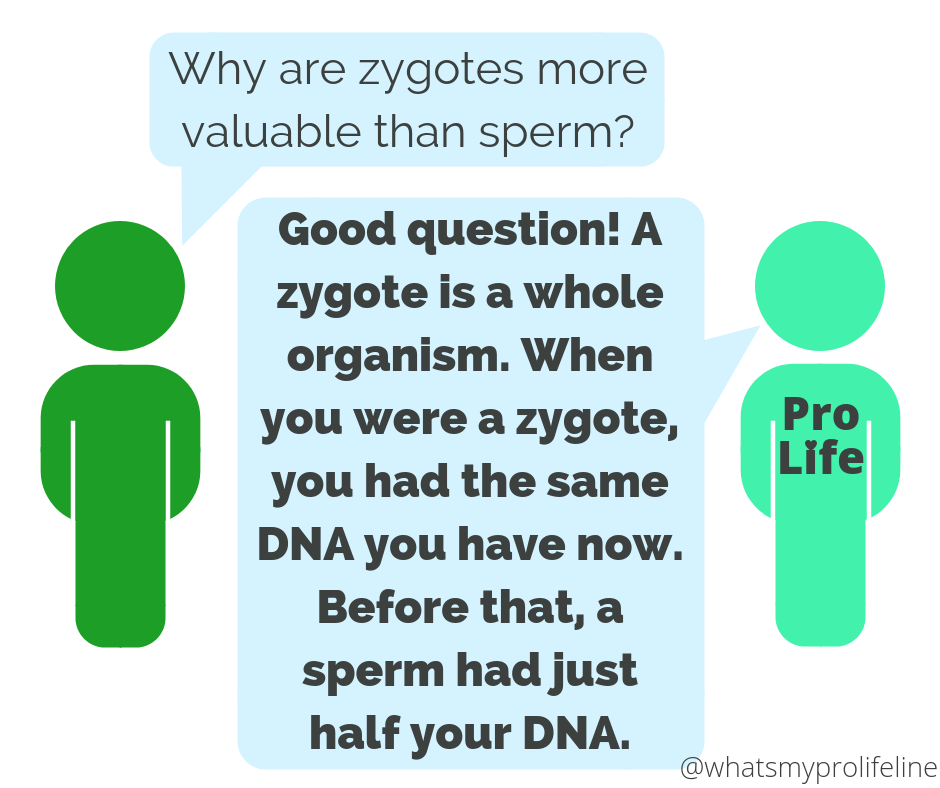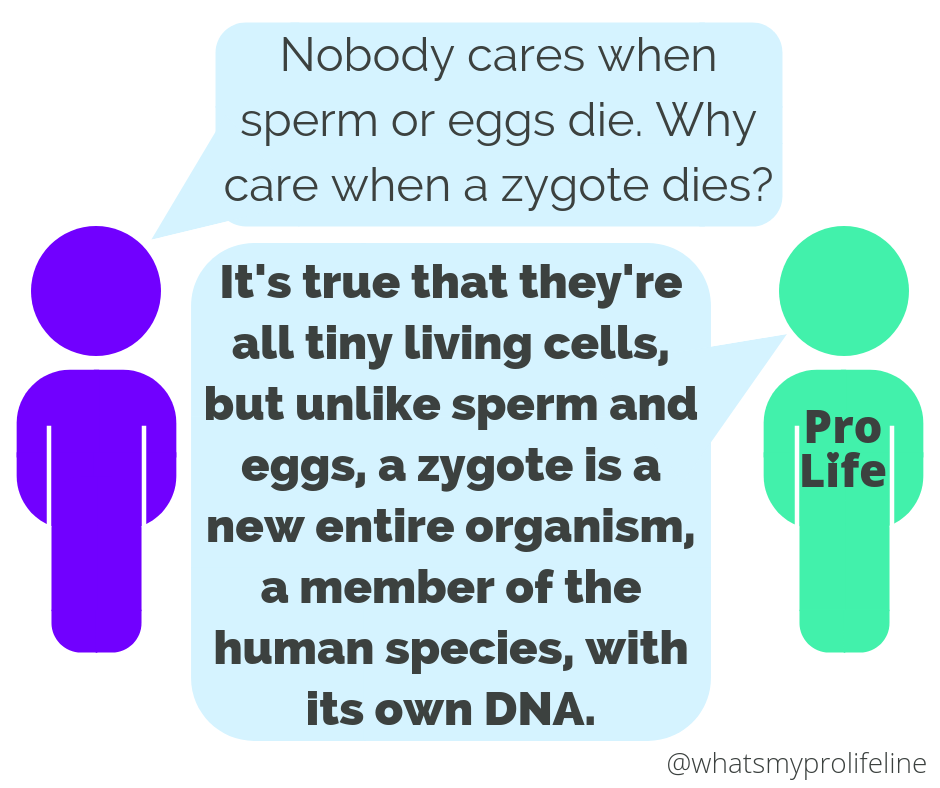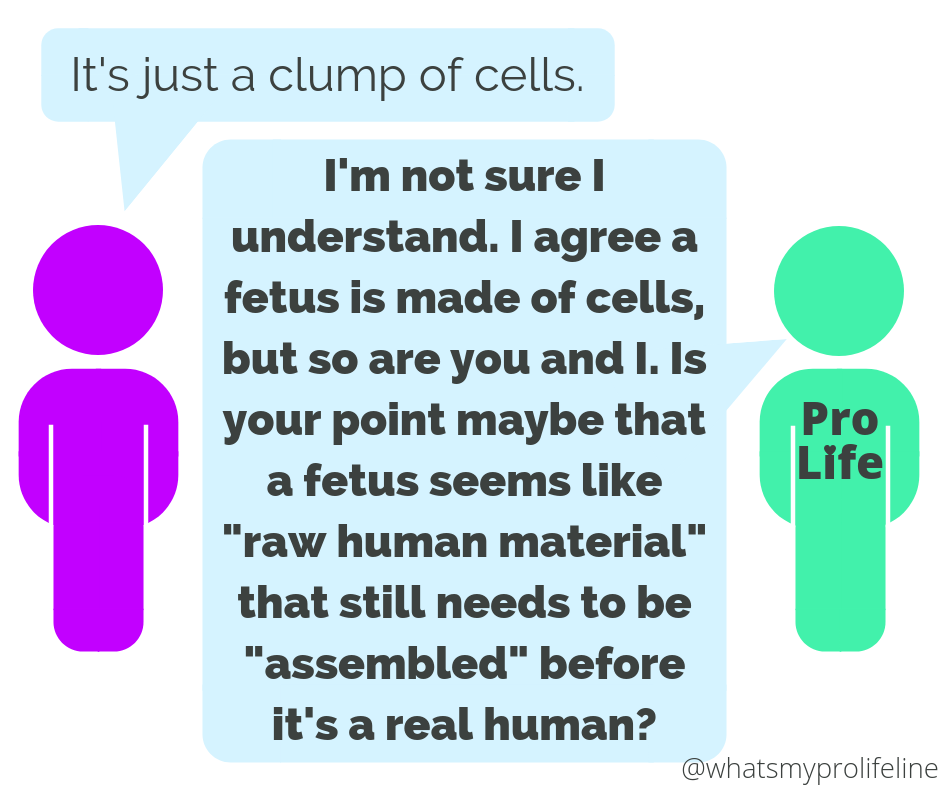
Is It Just a Clump of Cells?
If indeed this is what the person is concerned about, gently explain that after fertilization, the zygote directs her own development, using her own DNA to grow her own organs. The mother provides things like food and water, but she never “assembles” her baby. Biologically, a zygote is already a living member of the human species.
First posted